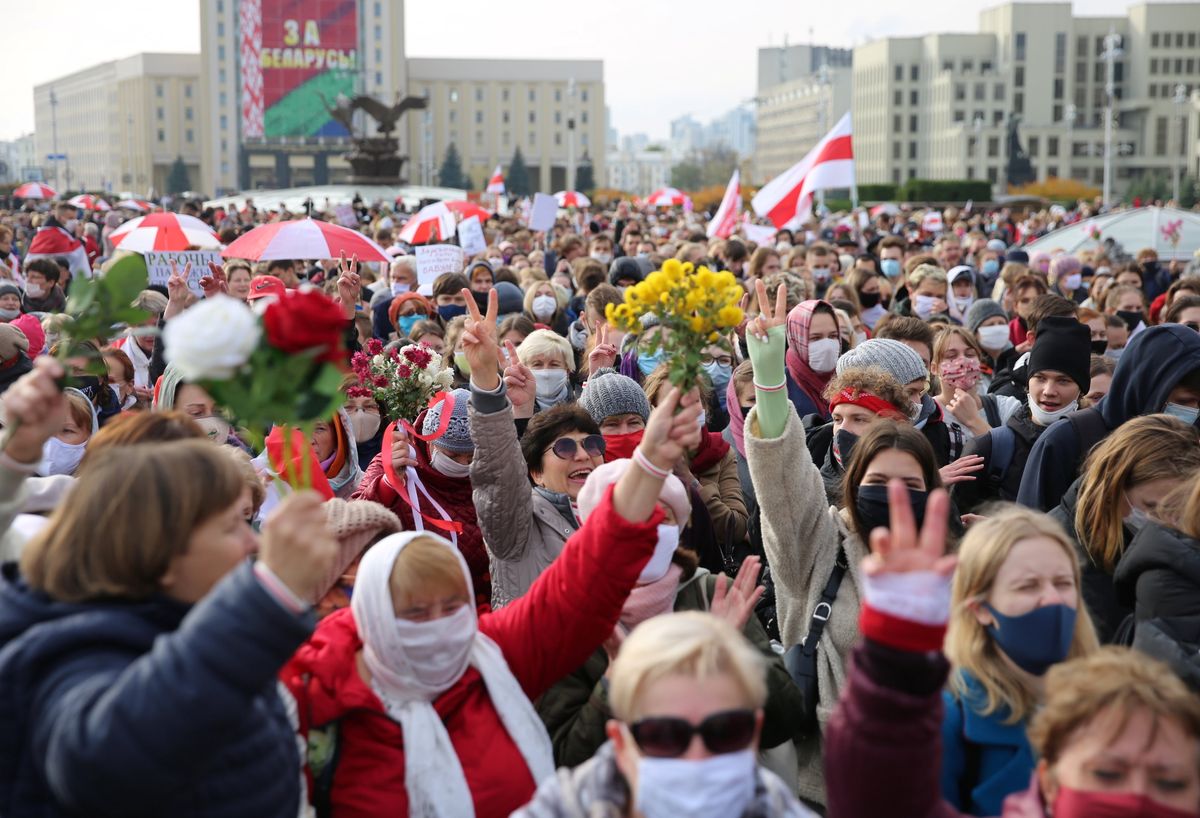Belarus on strike: In recent days, the Belarusian streets have turned up the heat on strongman President Alexander Lukashenko, as thousands of state factory workers and students in Belarus heeded a call from opposition leader Svyatlana Tikhanouskaya to join a general strike. Protests have roiled the country since August, when Lukashenko, in power since 1994, won a presidential election widely regarded as rigged. Last Sunday, 100,000 people turned up in Minsk, the capital. Tikhanouskaya — who ran against Lukashenko in that election and is currently exiled in neighboring Lithuania — had demanded the president resign by October 26. When he didn't, the walkout began. In one of the most iconic moments of protest so far, a striking worker at a refrigerator factory climbed the plant's tower to record a dramatic call for Lukashenko to step down. Belarus has been hit with sanctions from the US and EU, both of which are calling on him to hold new elections, but so far he has shown no signs of backing down, deploying his riot police with the usual fury. Something's got to give, soon.
Iran's nuclear project: The UN's nuclear watchdog said Wednesday that Iran has resumed work at its underground uranium enrichment plant in Natanz after the area mysteriously exploded back in July. Natanz, 200 kilometers south of Tehran, Iran's capital, has long been a flashpoint in the row between the West and Iran over the latter's nuclear program after satellite images in the early 2000s showed rapid construction in Natanz. Now, the UN watchdog says that while satellite imagery suggests that Tehran is in fact continuing to stockpile increased amounts of low-enriched uranium — which can be used to make a nuclear bomb — it does not appear to have amassed enough to produce a weapon at this stage. Indeed, since President Trump walked away from the Iran nuclear deal in 2018, Tehran has steadily been ramping up the amount of uranium it can stockpile, in breach of the 2015 accord. Meanwhile, the temperature between Washington and Tehran has been simmering since the US assassinated General Qassim Suleimani, head of Iran's elite, paramilitary Quds Force, back in January. If Joe Biden wins on November 3, will he opt to resume dialogue with Tehran — a move that might encourage the Iranian regime to hit pause on nuclear enrichment?
The Tanzanian "Bulldozer": Tanzanians go to the polls today in an election where the result is already known: President John Magufuli, one of Africa's most eccentric leaders, will get a second term in office. Magufuli — who likes to be called "The Bulldozer" for his love for public works and his pitiless approach towards critics — remains immensely popular. He has invested millions in infrastructure mega-projects and, having refused to shut down the country over COVID-19, can boast one of Africa's few economies to actually grow this year. However, dissidents warn that Magufuli is eroding democracy by cracking down on the opposition, muzzling the independent media, and tweaking laws to favor the ruling Party of the Revolution (which has dominated Tanzanian politics for decades). Although it's unclear how the pandemic will affect the election, "The Bulldozer" has declared the country coronavirus-free thanks to prayers from Tanzanians. For the sake of the millions voting in person in crowded facilities, he better be right.
















